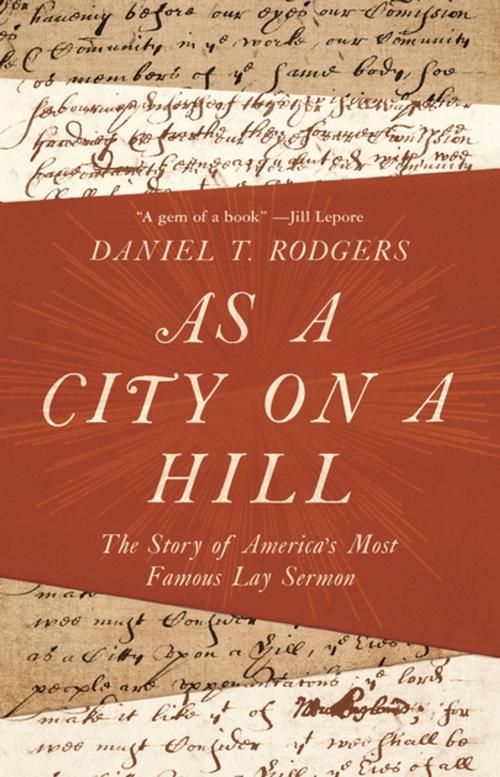As a City on a Hill
The Story of America's Most Famous Lay Sermon
Nonfiction, History, Americas, United States, Colonial Period (1600-1775), 20th Century| Author: | Daniel T. Rodgers | ISBN: | 9780691184371 |
| Publisher: | Princeton University Press | Publication: | November 13, 2018 |
| Imprint: | Princeton University Press | Language: | English |
| Author: | Daniel T. Rodgers |
| ISBN: | 9780691184371 |
| Publisher: | Princeton University Press |
| Publication: | November 13, 2018 |
| Imprint: | Princeton University Press |
| Language: | English |
How an obscure Puritan sermon came to be seen as a founding document of American identity and exceptionalism
“For we must consider that we shall be as a city upon a hill,” John Winthrop warned his fellow Puritans at New England’s founding in 1630. More than three centuries later, Ronald Reagan remade that passage into a timeless celebration of American promise. How were Winthrop’s long-forgotten words reinvented as a central statement of American identity and exceptionalism? In As a City on a Hill, leading American intellectual historian Daniel Rodgers tells the surprising story of one of the most celebrated documents in the canon of the American idea. In doing so, he brings to life the ideas Winthrop’s text carried in its own time and the sharply different yearnings that have been attributed to it since.
As a City on a Hill shows how much more malleable, more saturated with vulnerability, and less distinctly American Winthrop’s “Model of Christian Charity” was than the document that twentieth-century Americans invented. Across almost four centuries, Rodgers traces striking shifts in the meaning of Winthrop’s words—from Winthrop’s own anxious reckoning with the scrutiny of the world, through Abraham Lincoln’s haunting reference to this “almost chosen people,” to the “city on a hill” that African Americans hoped to construct in Liberia, to the era of Donald Trump.
As a City on a Hill reveals the circuitous, unexpected ways Winthrop’s words came to lodge in American consciousness. At the same time, the book offers a probing reflection on how nationalism encourages the invention of “timeless” texts to straighten out the crooked realities of the past.
How an obscure Puritan sermon came to be seen as a founding document of American identity and exceptionalism
“For we must consider that we shall be as a city upon a hill,” John Winthrop warned his fellow Puritans at New England’s founding in 1630. More than three centuries later, Ronald Reagan remade that passage into a timeless celebration of American promise. How were Winthrop’s long-forgotten words reinvented as a central statement of American identity and exceptionalism? In As a City on a Hill, leading American intellectual historian Daniel Rodgers tells the surprising story of one of the most celebrated documents in the canon of the American idea. In doing so, he brings to life the ideas Winthrop’s text carried in its own time and the sharply different yearnings that have been attributed to it since.
As a City on a Hill shows how much more malleable, more saturated with vulnerability, and less distinctly American Winthrop’s “Model of Christian Charity” was than the document that twentieth-century Americans invented. Across almost four centuries, Rodgers traces striking shifts in the meaning of Winthrop’s words—from Winthrop’s own anxious reckoning with the scrutiny of the world, through Abraham Lincoln’s haunting reference to this “almost chosen people,” to the “city on a hill” that African Americans hoped to construct in Liberia, to the era of Donald Trump.
As a City on a Hill reveals the circuitous, unexpected ways Winthrop’s words came to lodge in American consciousness. At the same time, the book offers a probing reflection on how nationalism encourages the invention of “timeless” texts to straighten out the crooked realities of the past.















